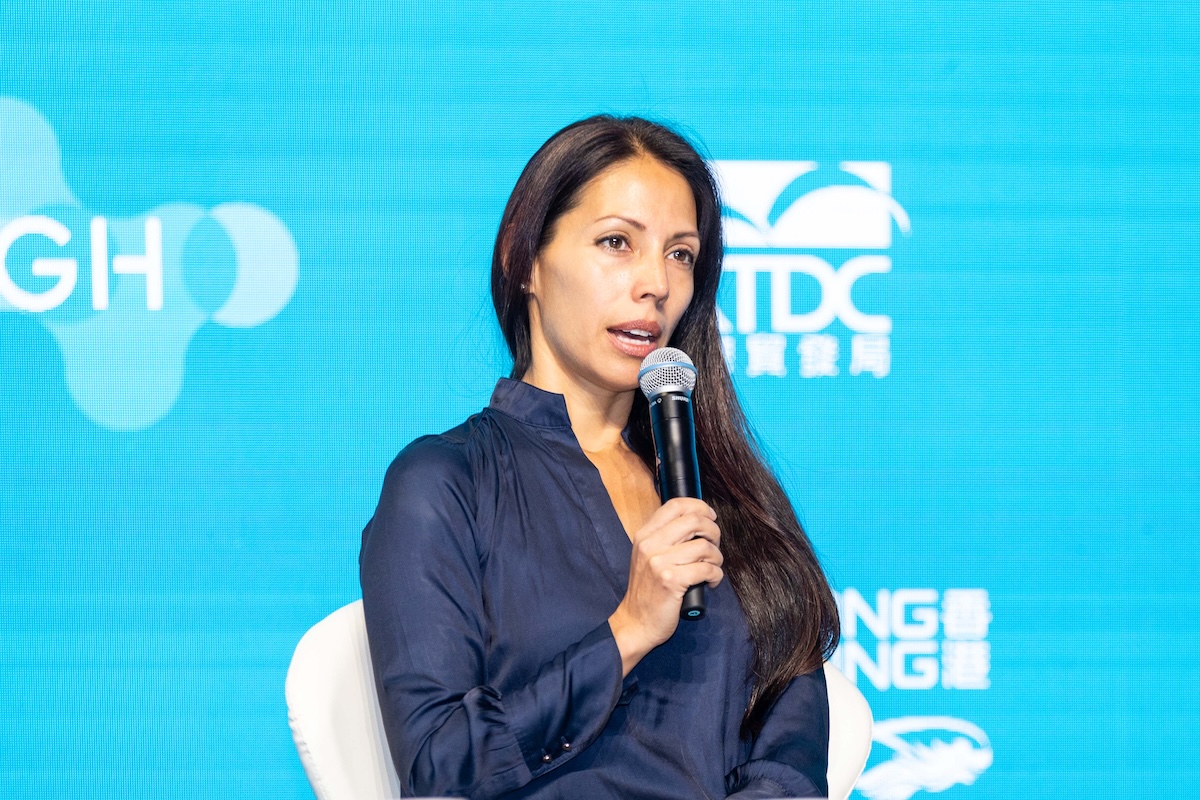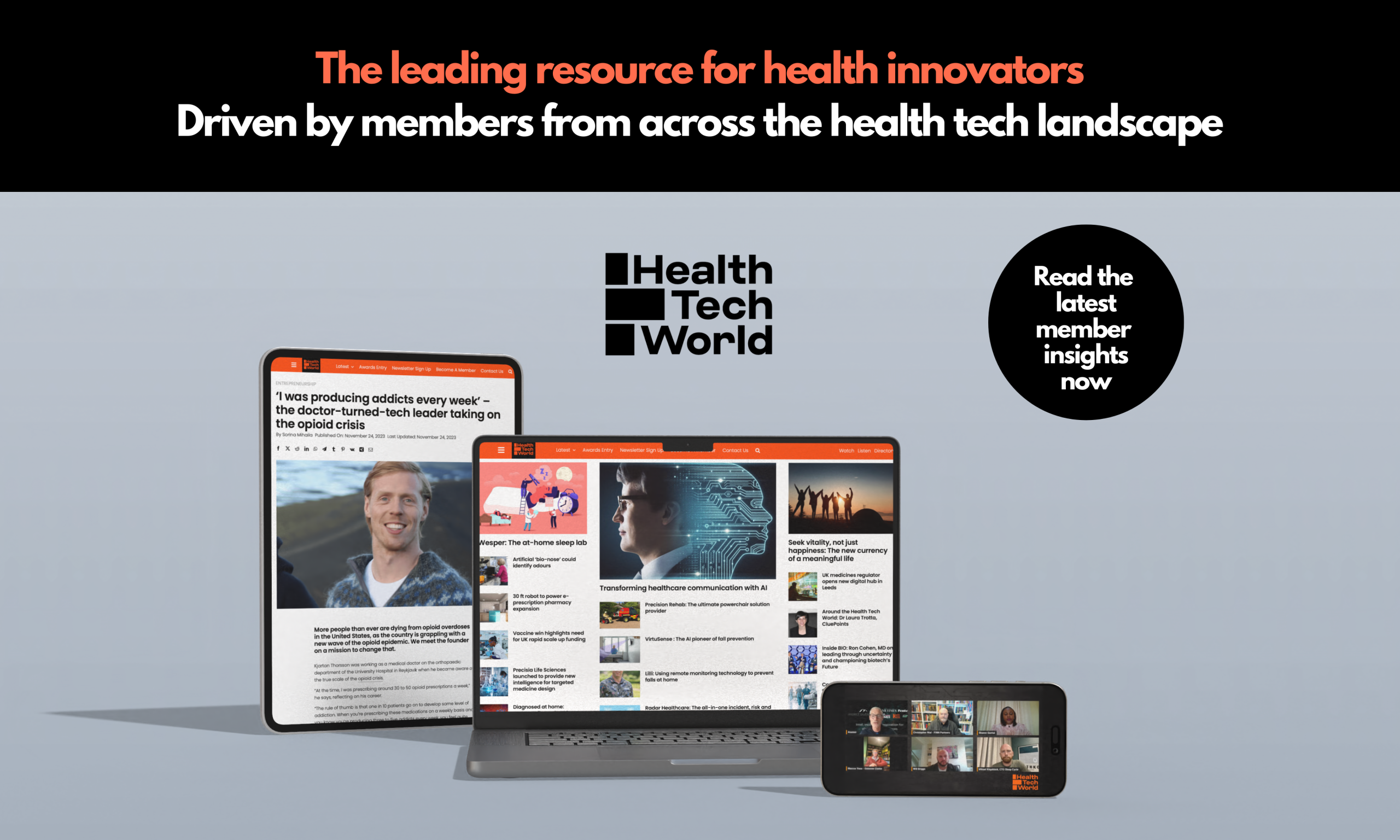Insight: The US$180m fund aiming to slow human ageing

Venture capital firm Apollo Health Ventures is funding and co-founding early-stage companies that are transforming age-related diseases and ageing. Health Tech World speaks to co-founder Dr Alexandra Bause to find out more.
Founded in 2017, Apollo Health Ventures has, to date, invested in 15 companies that are innovating in the longevity space.
From DNA damage repair and novel treatments for cancer to restoring thymus function in age-related diseases and discovering novel biomarkers, Apollo Health Ventures has invested more than US$180m in its portfolio of companies.
Bause explains that, although the fund is region-agnostic, it primarily focuses on the US and Europe.
What is Apollo Health Ventures’ mission?
Our mission is to develop therapeutics that target the biology of ageing,” says Bause.
The challenge with this is proving in humans that you’re impacting ageing. Unless you run 20 to 30-year-long trials, that’s not practical.
Longevity biotech companies like ours tend to develop drugs based on ageing biology, but for existing disease indications that already have a market and a clear development path today.
How does Apollo Health Ventures support biotech and longevity research?
Apollo Health Ventures is one of the first funds focused on biotech and longevity – closing its first fund of US$180m in 2021.
We’ve invested in about 15 companies through both traditional investments and venture creation.
With venture creation, we identify promising science, often at the preclinical stage, and help translate it into a startup.
We sometimes invest small amounts early on at around US$500,000 to US$1m, in order to validate the science before committing larger funding.
Before making a significant investment, we often run a ‘killer experiment’ which is a small but decisive study to confirm the science.
This helps us focus our capital on projects with a higher likelihood of success.
Since 2017, we’ve seen huge growth in the longevity biotech space, moving from primarily angel and family office backing to more dedicated funds and now active interest from big pharma.
How are longevity investments growing?
A number of companies in Apollo Health Ventures’ portfolio have secured investments from major pharmaceutical organisations, which highlights the growing trend towards longevity investment.
Initially, big pharma was simply exploring the space, but now several of our portfolio companies have pharma investors, and even our fund has a pharma LP,” says Bause.
Pharma interest tends to cluster around familiar therapeutic areas such as immunity and inflammation, cardiometabolic diseases, fibrosis, neurology and muscle health.
What’s shifting now is an interest in the underlying drivers of disease and intervening earlier rather than treating late-stage illness.
The shift is driven by growing public awareness, but there remain gaps in knowledge in order to truly advance science in the space.
Not much of this investment is focused on the wellness and supplement market, which often lacks rigorous evidence,” says Bause. “We don’t invest in that space, but we’d like to see more data there.
In biotech, the key need is for robust biomarkers that can measure whether an intervention truly impacts healthspan or disease risk.”
What are some examples of Apollo Health Ventures’ most advanced work?
One of Apollo Health Ventures’ most advanced companies is developing a rapamycin analogue.
The drug is traditionally used to prevent organ transplant rejection, however, in recent years science has shown it may hold potential for improving health and lifespans.
Rapamycin has shown the most robust lifespan extension in mammals, but its chronic use causes significant side effects.
Our analogue selectively targets one part of the mTOR complex [a protein that plays a vital role in cell regulation], avoiding these side effects.
Phase 1 is complete, and we see potential to expand from one initial indication into multiple others.
An area we’d be keen to explore further is in women’s health – we’re interested in targeting ovarian ageing to address downstream consequences of menopause.
The field of age science risks becoming noisy with semi-scientific claims and extrapolations from animal data without human evidence.
I hope better measurement tools will help cut through that.
The big opportunity is biomarkers. Once validated, they will let us measure effects earlier in trials and accelerate development dramatically.
I’m optimistic this could happen in the next three to five years – especially with biomarker development programmes like the US ARPA-AGE initiative underway.
If successful, these tools could transform how quickly and confidently we advance new longevity therapeutics.”
How is Apollo Health Ventures funding innovation globally?
To date, the fund’s notable investments include Auron Therapeutics, HAYA Therapeutics, Bloom Science, Booster Therapeutics and more.
While Apollo Health Ventures is region-agnostic, the fund is looking to expand into Asia as the region has significant longevity needs as well as innovation potential, and is always on the look out for companies working to advance longevity science.
Singapore is a hub for healthy ageing, Japan is a scientific leader with one of the fastest-ageing populations and Korea is strong in cosmetics.
Everyone on our investment team has a PhD in a scientific field such as molecular biology, biochemistry or biotech, along with industry experience in pharma, healthcare consulting or biotech venture capital.
My background is in science – I have a PhD in cellular ageing, looking at the molecular biology behind the decline we see as we age.
That decline drives age-related chronic diseases and general dysfunction. I also have a pharmacology background.
In biotech funds, this depth of scientific background is common, though less so in funds that invest in broader longevity or consumer tech.
We’re always looking for innovations in the biology of ageing.
For biotech entrepreneurs, strategy is crucial – pick indications that matter to big pharma, design a path to clinical proof of concept, and ensure the endpoints align with your mechanism.
Common mistakes include choosing hard-to-measure endpoints or niche indications without a clear market.
Health Tech World met Dr Alexandra Bause at the Asia Summit on Global Health, facilitated by the Hong Kong Trade Development Council (HKTDC).







